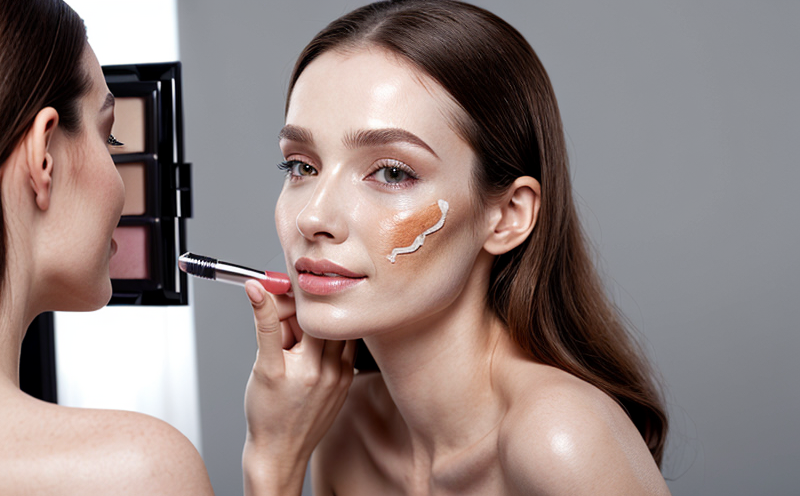Comprehensive Dermatological and Clinical Efficacy Testing for Cosmetics
In the highly regulated world of cosmetics testing, ensuring that products are safe and efficacious is paramount. Our comprehensive dermatological and clinical efficacy testing service provides a robust framework to evaluate both the safety and performance of cosmetic formulations. This service encompasses a range of tests designed to meet regulatory requirements and industry standards, ensuring your products not only comply with international regulations but also deliver on their intended benefits.
The primary focus of this service is to assess the potential irritation, sensitization, and overall safety profile of cosmetic ingredients and finished products. Regulatory bodies such as the European Union's Cosmetics Regulation require rigorous testing before a product can be marketed. Our lab adheres to these standards, ensuring that every test conducted aligns with international guidelines like ISO 21029:2018 for irritancy tests.
Our dermatological and clinical efficacy testing service is designed to support your R&D efforts by providing detailed insights into how your products interact with human skin. This includes evaluating the compatibility of ingredients, identifying potential allergens, and determining the optimal concentrations needed for efficacy. By leveraging advanced analytical techniques such as chromatography and spectroscopy, we can provide you with precise data that informs product development decisions.
At its core, this testing service aims to bridge the gap between laboratory research and real-world application by simulating various environmental conditions under which your products will be used. This approach ensures that the results obtained are representative of actual consumer experiences. Our team of experts uses state-of-the-art equipment to conduct these tests, including advanced imaging technologies like confocal microscopy, which allow for detailed visualization of skin responses.
We also offer a wide array of clinical efficacy studies tailored specifically towards evaluating the effectiveness of your cosmetic formulations in addressing specific skin concerns such as acne, aging, and hyperpigmentation. These trials are conducted under controlled conditions to ensure accurate measurement of outcomes. For instance, we utilize photometric analysis to assess changes in skin tone or texture after prolonged use.
- Quality Assurance: Each test undergoes multiple quality checks at different stages to maintain high standards.
- Data Accuracy: Our commitment ensures that all data collected is accurate and reliable, providing you with confidence in your product's performance.
Scope and Methodology
The scope of our dermatological and clinical efficacy testing service extends beyond simple irritation or sensitization tests. We offer a holistic approach that covers all aspects relevant to the safety and effectiveness of cosmetic products. This includes, but is not limited to, allergenicity assessments, patch testing for contact dermatitis, occluded patch testing to mimic real-world conditions, and phototoxicity evaluations.
For efficacy studies, we employ various methodologies depending on the specific claims made about a product. For instance, if a sunscreen formulation is claimed to provide broad-spectrum protection against UV radiation, we would conduct quantitative UV spectrophotometry alongside in vivo testing using human volunteers to measure SPF values and other relevant metrics.
The methodology for these tests adheres strictly to recognized standards such as ASTM E2436-18 which specifies procedures for determining the photostability of cosmetic products. Additionally, we follow EU Cosmetics Regulation 1272/2005 concerning labeling and safety information requirements.
- Standard Compliance: Ensures that all tests comply with relevant international standards like ISO 21029:2018 for irritancy tests.
- Volunteer Recruitment: We work closely with healthcare professionals to recruit appropriate volunteers who represent diverse skin types and conditions necessary for robust testing.





